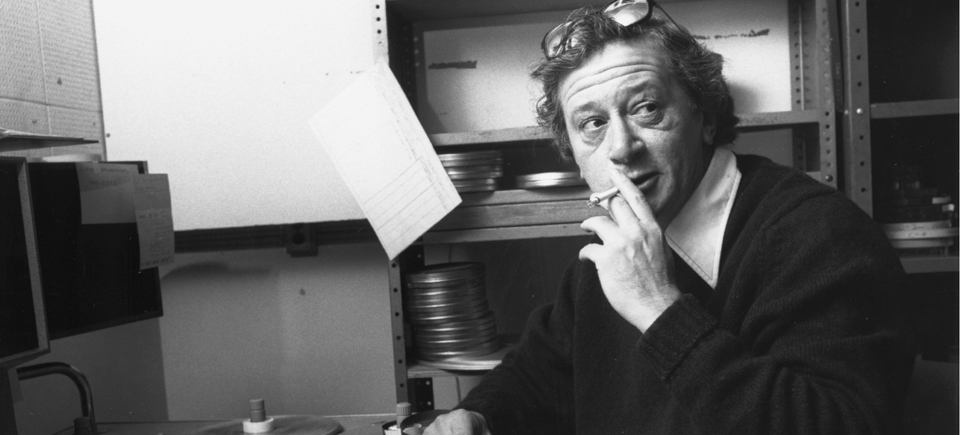


Of all the giants in the NFB’s storied history, one of my favourites is Donald Brittain. He strikes me as the bad boy of cinema – the hard-drinking rebel who wasn’t afraid to take down anyone he felt grew too big for their britches… as long as he could couch it in some clever narration. Preferably in the form of a bio-pic.
Years ago, I did some research into his work while helping prepare a playlist we have online. The intro for the playlist was done by Adam Symansky, producer, collaborator, and friend of Brittain’s. Discussing the late filmmaker, he says, “Brittain was a diehard Canadian and that coloured all of his work. He knew every stop the CP line made from Montreal to Vancouver. He loved to tackle Canadian history, but only through biography. He wanted to mythologize Canada, and he understood that the best way to do that was through character.”
Here a few of my favourites. If you love them, you can check out the rest of our collection online.
This was one of the first films Brittain directed at the Board. It was a film sponsored by the Department of Veteran Affairs and none of the established filmmakers of the day wanted anything to do with it. The goal of the film was to show Canadians the sites of various battles as they appeared in the ‘60s, when the film was made. Brittain could’ve just filmed it and forgot it, but this was the film on which he found his voice and his style. With his incredible writing abilities juxtaposed against some stunning cinematography, he elevated this film to the next level.
This is one of those films that I think didn’t get the spotlight it deserved. It’s a hysterical take-down of bureaucracy and red-tape that will leave you holding your sides from laughing so hard. The tone is so serious, and the content so preposterous. From Symansky I learned that the film was actually his way of getting revenge on a particular producer at the Board. The man had chutzpah.
Another war film, this one tackles WWII and the Holocaust. Brittain took on this film for two reasons – first, he thought it was important that someone tell this story from a non-Jewish perspective, and second, his wife was German, something he somehow seemed to need to reconcile with himself. The film itself follows a Holocaust survivor in 1965 as he returns to the concentration camp where he was held prisoner.
Brittain was a huge baseball fan, especially when it came to the Montreal Expos. A character study of a professional player was the perfect project for him. The film follows Ferguson Jenkins through the 1972-73 season, from spring training through to the sweltering days of August. Fun fact: Much of this film is faked, as they had some difficulty getting access to the team during the second year, so they had to cover using all the first year’s footage.
This Oscar-nominated film, which chronicles the life and work of writer Malcolm Lowry, held a special place in Brittain’s heart. It was narrated by Richard Burton, and the thread of great talent tinged by alcohol runs through both the film, and the lives of the three principals involved. It was also a big bonding film for him and his crew. All the forces aligned to make this film one of the greats.
For more information on Donald Brittain, check out Donald Brittain: Filmmaker.